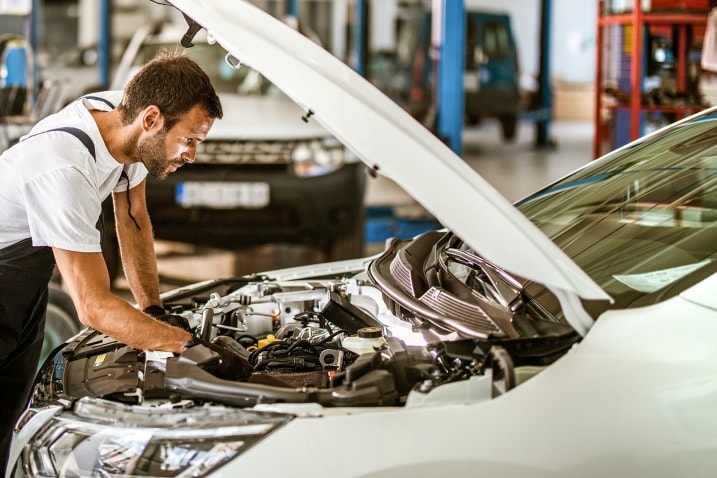All Categories
Featured
Recognizing Diagnostics in Vehicle Fixing: A Key to Effective Upkeep
In today's swiftly progressing automotive landscape, diagnostics play a pivotal duty in ensuring precise and effective vehicle repair. Modern cars are equipped with sophisticated innovation, making it critical for repair specialists and automobile proprietors alike to comprehend the diagnostic process. By determining concerns early and appropriately, diagnostics can conserve time, decrease prices, and improve the total efficiency of your vehicle.What Are Car Diagnostics? Lorry diagnostics include examining your vehicle's systems to spot and identify issues. This procedure usually counts on sophisticated analysis devices that link to the car's onboard computer system. A lot of contemporary cars are equipped with an Onboard Diagnostics (OBD) system, which monitors numerous elements, such as the engine, transmission, brakes, and discharges.

When something goes incorrect, the OBD system documents error codes, which are after that accessed using a diagnostic scanner. These codes use beneficial insights into the breakdown, enabling technicians to figure out the origin reason and advise ideal fixings.
Why Are Diagnostics Important? Accurate Concern Identification: Diagnostic devices offer precise details regarding troubles within your automobile. As opposed to depending on guesswork or visual inspections alone, technicians can quickly determine the specific component or system that requires attention. Time and Expense Effectiveness: Very early discovery of prospective concerns helps stay clear of costly fixings. For example, diagnosing a small problem with your engine's timing can avoid more considerable damages that may bring about engine failure. Boosted Safety and security: By recognizing problems in crucial systems like brakes or air bags, diagnostics guarantee your automobile is secure to drive. Ecological Advantages: Proper diagnostics can aid find issues with discharges systems, guaranteeing your vehicle follows ecological guidelines and reduces its carbon footprint. The Diagnostic Process. When you take your automobile to a service center for diagnostics, the procedure usually involves 3 key steps:
Linking the Diagnostic Device: A specialist connects a customized scanner to your car's OBD port. This gadget reads error codes kept in the vehicle's computer system. Assessing the Data: The mistake codes are cross-referenced with maker requirements to interpret the issue. For instance, a "P0420" code could indicate a problem with the catalytic converter. Evaluating and Verification: To make certain accuracy, auto mechanics might do added tests, such as examining parts physically or running efficiency tests. Picking the Right Service Center. Not all service center supply the same level of analysis proficiency. Seek a center equipped with the current devices and staffed by licensed professionals trained to manage your automobile's certain make and version. Quality stores often buy constant training to stay updated with improvements in automotive technology.
Last Ideas. Comprehending diagnostics is vital for aggressive automobile maintenance. Regular diagnostic checks can uncover surprise problems, optimize your vehicle's performance, and prolong its life-span. Whether you're going to a fixing shop for routine upkeep or resolving a certain worry, accurate diagnostics prepared for reliable fixings.

By prioritizing diagnostics, you're not just repairing your automobile-- you're buying its durability and integrity.
Latest Posts
Secure Your Financial Investment with Specialist Gutter Installment
Published May 26, 25
1 min read
Learn How to Reduce Expenses on Car Maintenance with Montclare Auto Repair’s Limited-Time Deals
Published May 23, 25
1 min read
Identifying When Your Car Needs Skilled Vehicle Service at Montclare Auto Repair
Published May 23, 25
1 min read
More
Latest Posts
Secure Your Financial Investment with Specialist Gutter Installment
Published May 26, 25
1 min read
Learn How to Reduce Expenses on Car Maintenance with Montclare Auto Repair’s Limited-Time Deals
Published May 23, 25
1 min read
Identifying When Your Car Needs Skilled Vehicle Service at Montclare Auto Repair
Published May 23, 25
1 min read